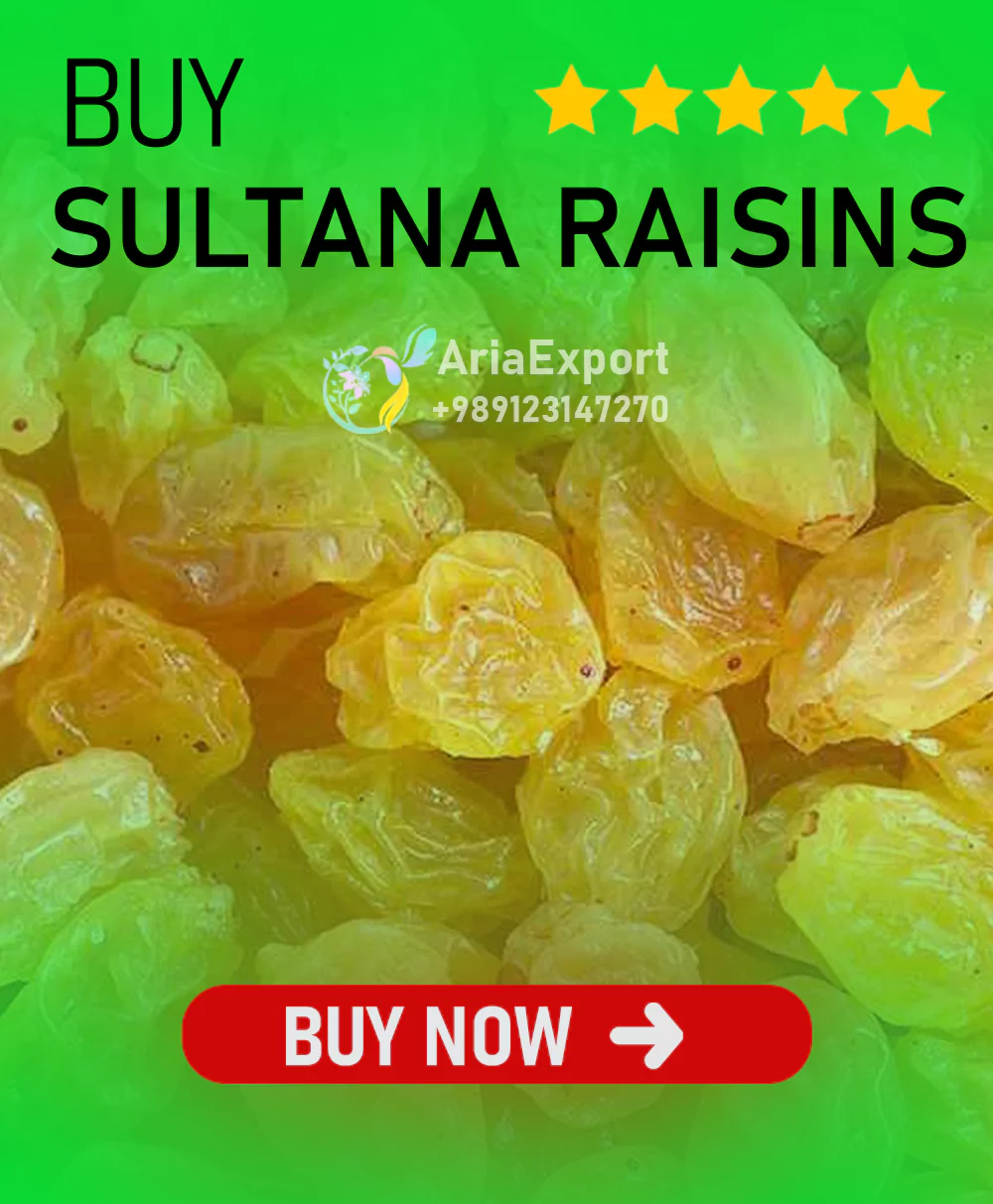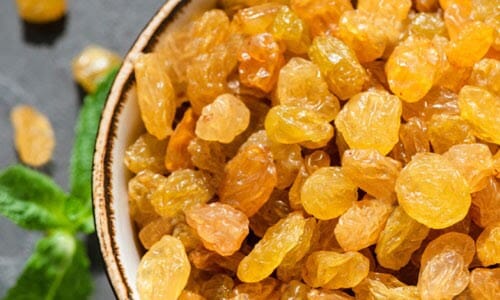
Sultana raisins are a type of dried grape that originated from the sultana grape variety, known for its seedlessness and sweet flavor. The name "Sultana" is believed to have been derived from the Sultanate of the Ottoman Empire, where these grapes were first cultivated extensively.
What are Sultana Raisins?
Sultana raisins are dried grapes from iran and turkey. in iran, malayer is the biggest city producing them. they are also made in bonab, malekan, quchan, and takestan. sultana raisins come from seedless green thompson grapes. before drying, the grapes are soaked in a solution to keep their bright golden color.
they taste sweet and mild. every 100 grams has about 325 calories. theyre good because their sugar is natural (fructose), they help digestion, have antioxidants to reduce inflammation, and support heart health, bone health, and prevent anemia.
you can use them in cooking, baking, desserts, or as a snack. they last a long time and are great for exporting to other countries.
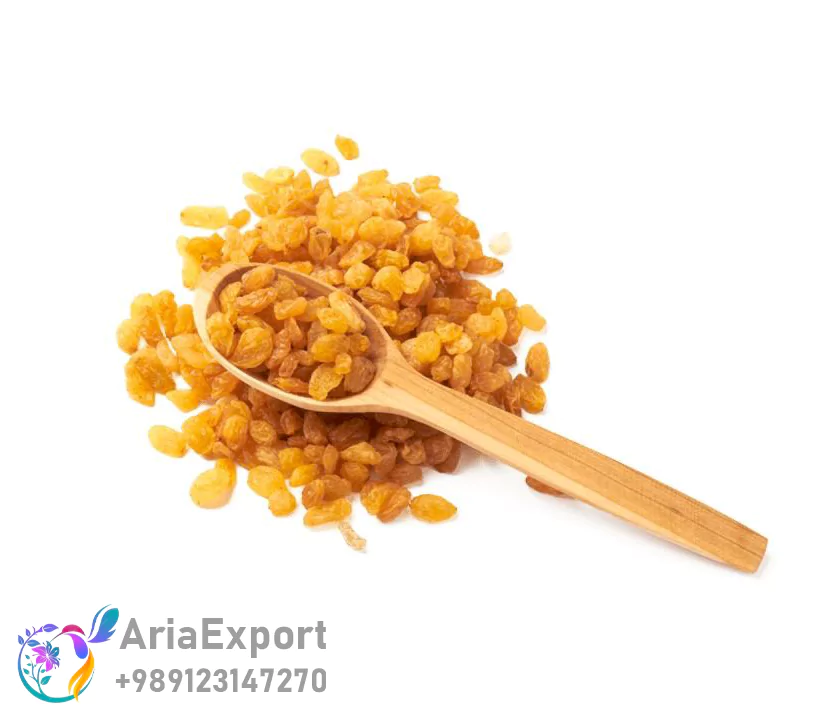
Sultana Raisins Nutritional Facts
you can see the nutritional value of sultana raisins in the table below. these raisins contain nutrients like protein, fiber, calcium, iron, and more. the table shows the amount of each in 100 grams:
| Serving Size | 100g | |
|---|---|---|
| Calories | 325 | |
| Total Fat | 0g | 0% |
| Total Carbohydrate | 78g | 28% |
| Dietary Fiber | 2.5g | 9% |
| Protein | 2.5g | 5% |
| Iron | 2.7mg | 15% |
| Calcium | 50mg | 4% |
these values make sultana raisins a nutritious choice for snacks or cooking.
sultana raisin calories
in every 100 grams of sultana raisins, there are 320 to 325 kilocalories. this can provide part of the energy your body needs during the day.
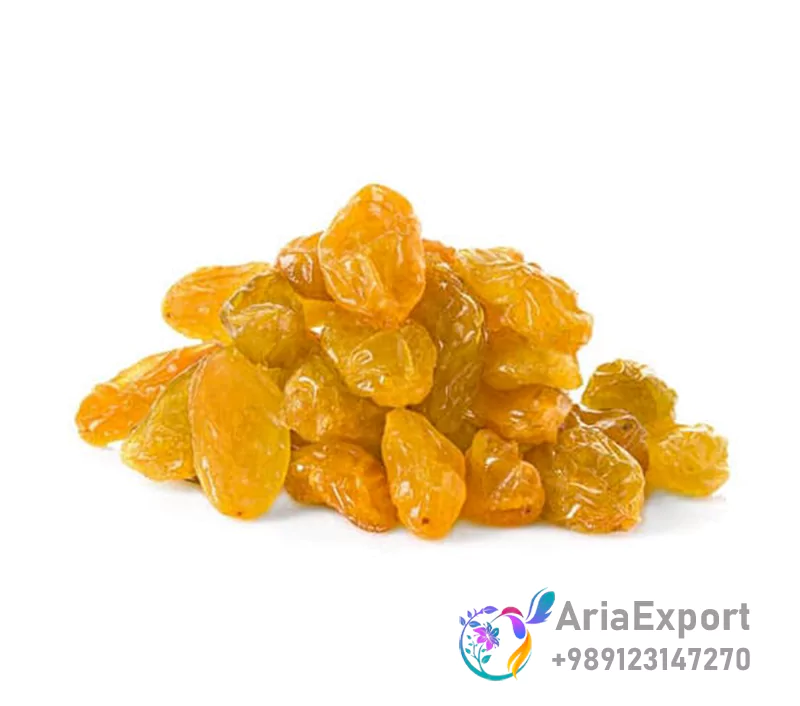
Sultana Raisins Benefits
sultana raisins have many health benefits. here are some of them.
1. rich energy source
with natural sugar (fructose), sultana raisins are a great energy source for athletes and people who need a lot of energy.
2. good for digestion
high in fiber, these raisins help improve gut health.
3. reduces inflammation
thanks to antioxidants, sultana raisins help fight inflammatory diseases.
4. heart health
antioxidants also protect cells from oxidative damage, supporting a healthy heart.
5. bone health
elements like potassium and calcium help maintain strong bones.
6. prevents anemia
with iron, they support red blood cell production, helping prevent anemia.
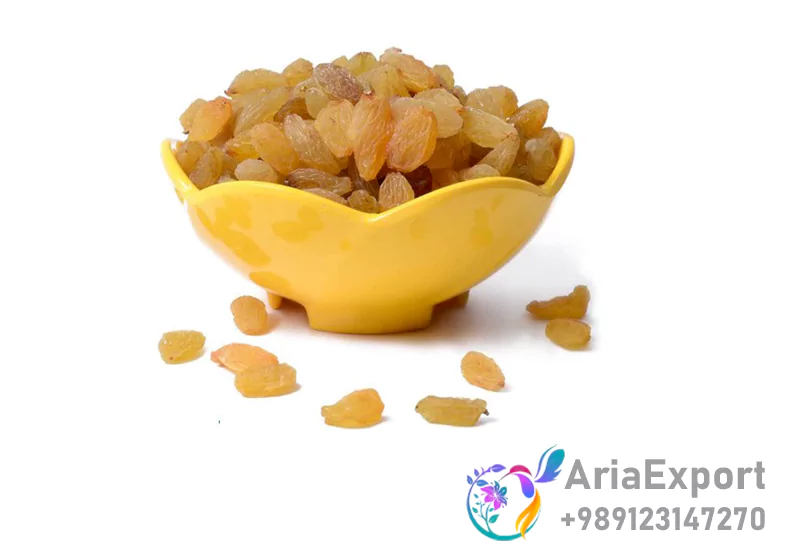
Sultana raisins disadvantages
while sultana raisins have many benefits, they also come with some drawbacks and precautions. here they are.
1. high sugar content
sultana raisins have a lot of natural sugar (fructose), which can be harmful for people with diabetes if eaten in large amounts. also, those on low sugar diets should limit their intake.
2. high calorie density and obesity risk
due to their high natural sugar, they can contribute to weight gain. people prone to obesity should eat them in moderation.
3. allergic reactions in some people
during production, sulfite solutions may be used to preserve color and shelf life. this can cause allergic reactions in sensitive individuals.
Sultana raisin characteristics
here are some features of sultana raisins:
1. grape Type
derived from white, seedless grapes, typically the sultana or thompson seedless variety.
2. color
light yellow or golden, due to a chemical treatment process that preserves the bright color.
3. taste
sweet and mild with a softer and more delicate flavor compared to raisins and currants.
3. texture
juicy and tender with a softer texture than currants and often softer than raisins.
4. size
smaller than raisins, with a more uniform and petite appearance.
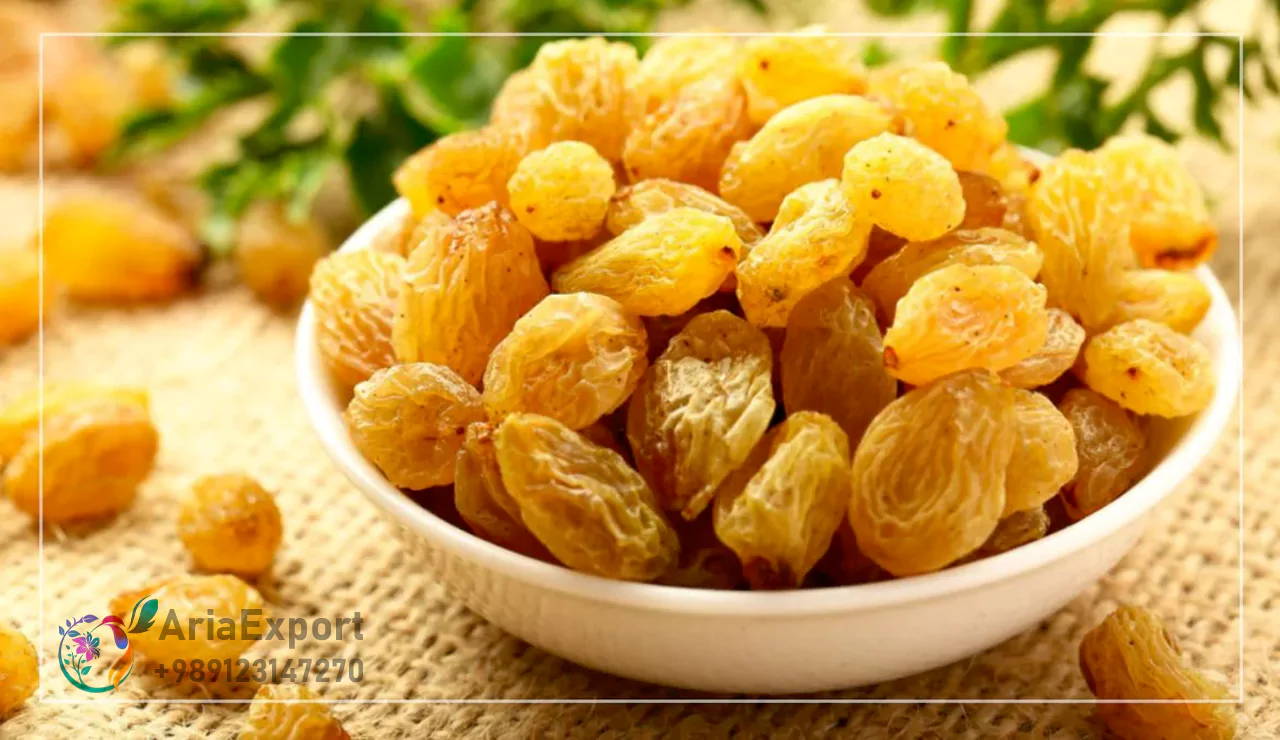
Sultana Raisins VS Raisins & Currants
you can see the differences between sultana raisins, regular raisins, and currants in the table below:
| Comparison of Raisins, Sultanas, and Currants | |||
| Feature | Raisins | Sultanas | Currants |
| Grape Type | Dark grapes (e.g., Thompson or Muscat) | White seedless grapes (Sultana or Thompson) | Black Corinth grapes |
| Color | Dark brown or black | Light yellow or golden | Black |
| Taste | Sweet with a robust aftertaste | Sweet and mild | Tart and tangy |
| Drying Method | Sun-dried or mechanical | Chemical process to retain color | Natural drying |
| Culinary Use | Breads, cakes, Middle Eastern dishes | Baking, desserts, snacks | Scones, jams, tangy dishes |
packaging process for sultana raisins
sultana raisins go through several steps before theyre ready for packaging:
- first, the raisins are sent to washing centers. they are cleaned mechanically with fresh water using special machines and then placed on wooden or plastic trays.
- the raisins go to a smokehouse. this is a closed space where theyre exposed to sulfur smoke, which helps preserve their color and disinfects them.
- they move to a hot air tunnel to control moisture and improve shelf life. if this step isnt done properly, the raisins can spoil early.
- the raisins enter the packaging line. here, they go through processes like stem removal, debris sorting, husk removal, x-ray sorting, laser sorting, and oil coating.
- finally, the raisins are packaged based on customer orders.
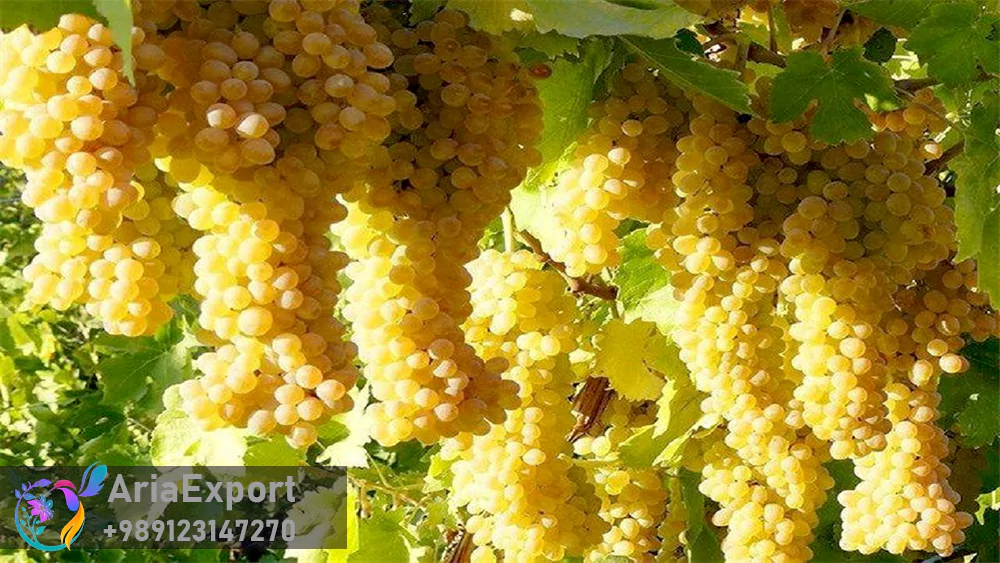
How to store Sultana?
to store sultana raisins you can keep them in a sealed container in the fridge if you use them soon otherwise you should put them in a vacuum sealed plastic bag and store in the freezer.
where to buy sultana raisins?
if you are looking to check online prices and buy sultana raisins we are here at aria export as a trusted supplier we offer sultana raisins at wholesale prices and ship worldwide feel free to contact us now for more details.
Sources:
https://www.healthline.com/nutrition/raisins-sultanas-currants
